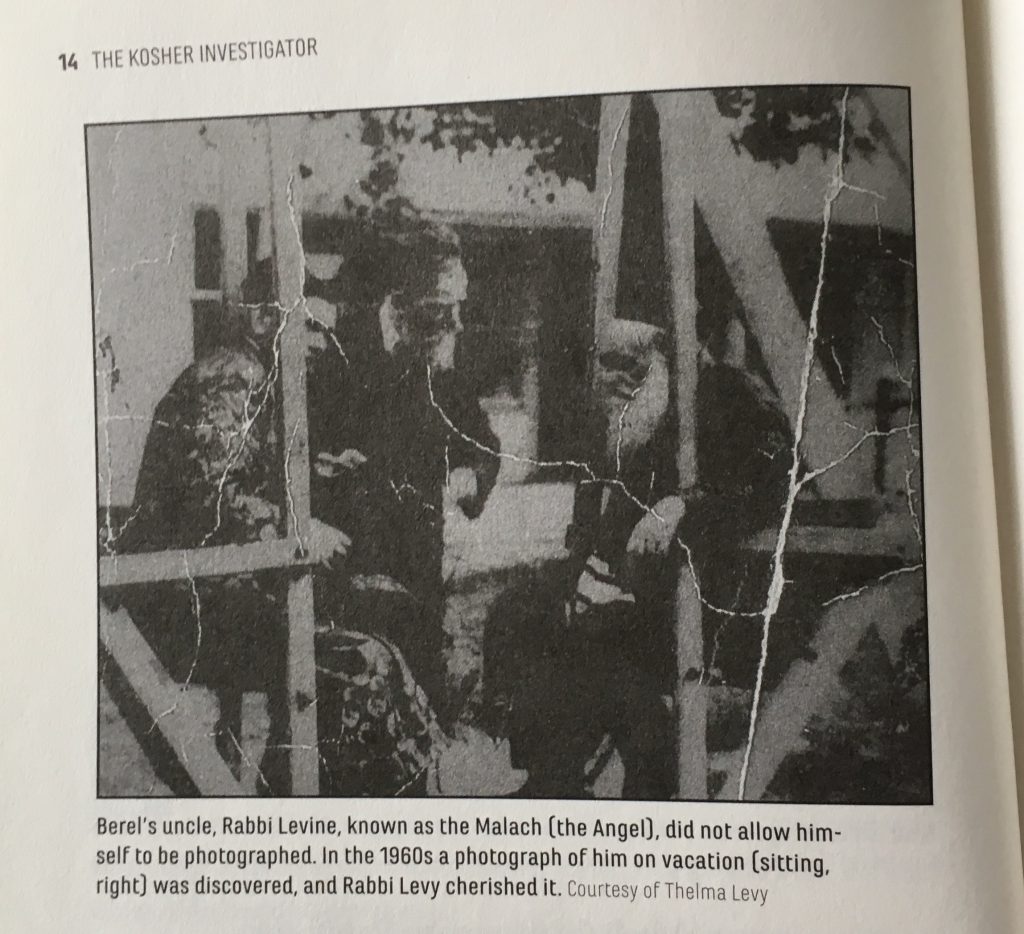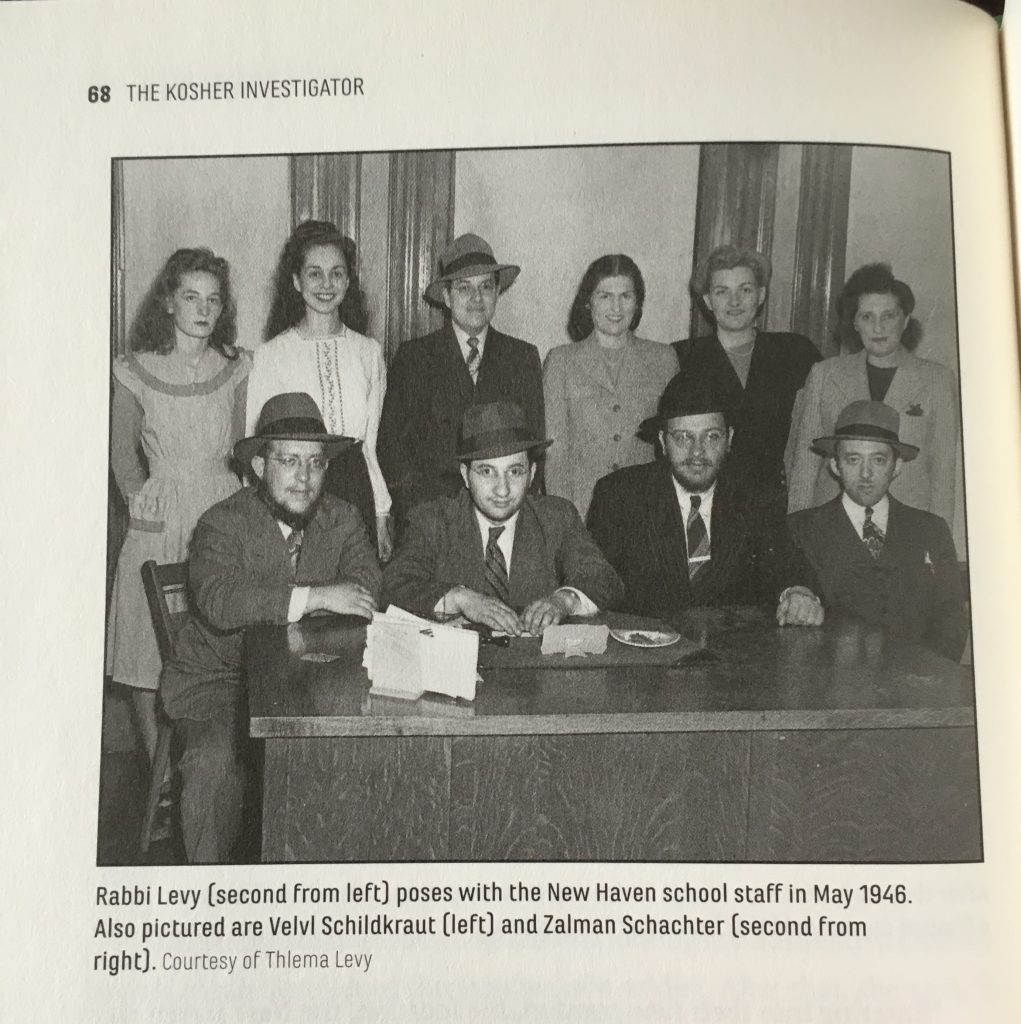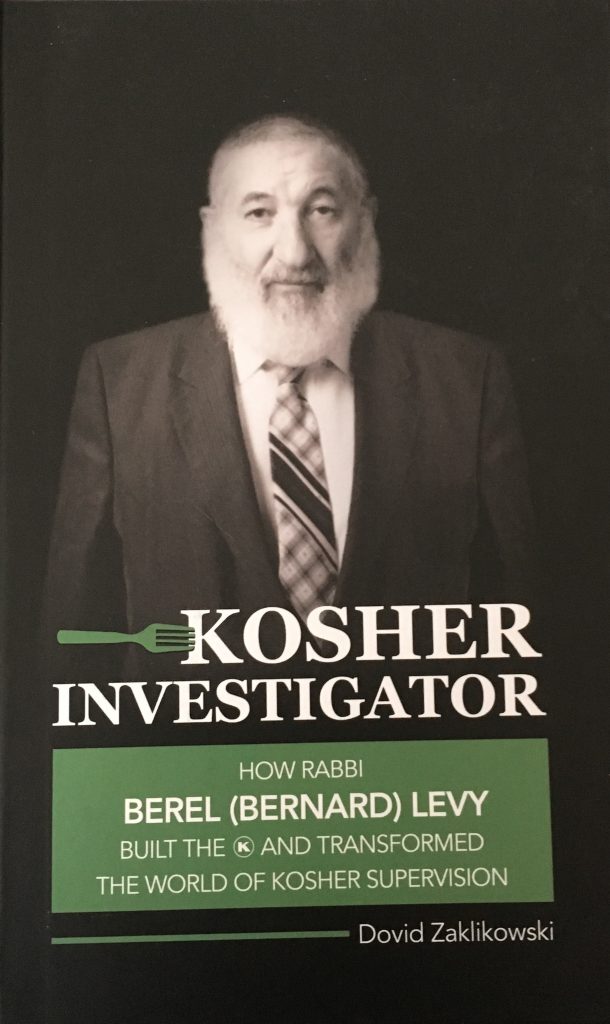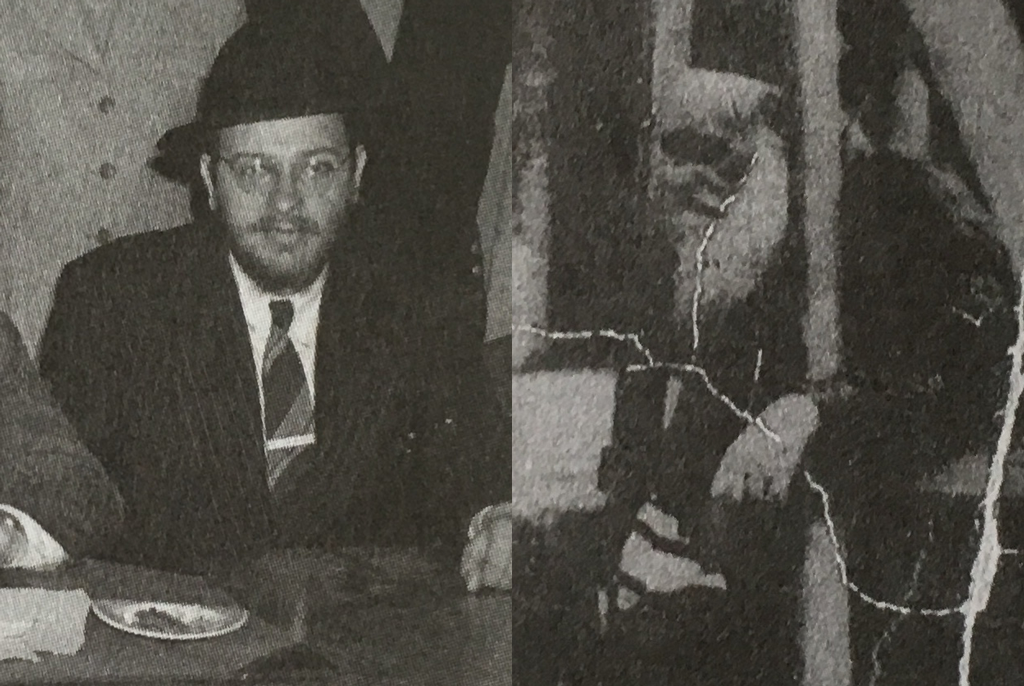Dream Dialog between the Malakh and Reb Zalman
by Bezalel Naor
Dramatis Personae
The Malakh (Angel)—Rabbi Hayyim Avraham Dov Baer Hakohen Levine (b. Ilya, Belarus, c. 1860—d. Bronx, New York, 1938). Founder of a small Hasidic sect known as Malakhim (Angels) which is characterized by extreme adherence to Old World Hasidism. According to the tradition of the Malakhim, Rabbi Levine had once mentored young Yosef Yitzchak Schneersohn, who later went on to become the Lubavitcher Rebbe. The official history of the Lubavitch movement does not acknowledge this as fact.
Reb Zalman—Rabbi Meshullam Zalman Hiya Hakohen Schachter-Shalomi (b. Zolkiew, Poland, 1924—d. Boulder, Colorado, 2014). Founder of a neo-Hasidic movement known as Jewish Renewal. Earlier, Rabbi Schachter had been an official shaliah (emissary) of the Lubavitch movement, dispatched by Rabbi Yosef Yitzchak Schneersohn.
Mise-en-scène
The Malakh and Reb Zalman are seated opposite one another at a round table. The round table was chosen by Reb Zalman to evoke the legendary mahol la-tzaddikim, the dance circle of the righteous in the future. The circle symbolizes that all the righteous are equal, though each has chosen a different path to reach the En Sof, the Infinite. Their different paths are like the spokes of a wheel, each reaching to the hub at the center, which is the Holy One, known by many names: El, Allah, etc.
The Malakh is wearing a huge white woolen arba kanfos (four-cornered fringed garment resembling a poncho with a hole in the middle for the head) reaching well below his knees. Toward the bottom of the garment are a couple of horizontal black stripes, stark in contrast to the white background. Underneath the arba kanfos, the Malakh wears a white button-down dress shirt.
Reb Zalman wears his signature rainbow-colored tallis over an embroidered white cotton kurta tunic from India.
Before the conversation begins, both men light up cigarettes. The Malakh has brought with him pungent Turkish tobacco, for which he acquired a liking in his youth in Russia. Reb Zalman takes out an expensive gold cigarette case and opens it to reveal a cannabis cigarillo that he prepared specially for this occasion. Each man takes a deep puff of his favorite cigarette, inhaling his brand of smoke into the lungs. Both men break out in a brief coughing spell.
The social amenities out of the way, the parley between the two renegade Hasidic chiefs begins in earnest.
Malakh: “Why have you requested this meeting? I mean, we don’t exactly travel in the same social circles.”
Reb Zalman: “The reason for our meeting today is to discuss the common ground between us and to explore possible ways in which our respective talmidim (disciples) who still enjoy the status of neshamah she-ba-guf (a soul in a body) may cooperate and work together to bring Mashiah.”
Malakh: “Zehr schein. (Very beautiful.)”
Somewhat cynical: “Takhlis. (To the point.) How did you hear about me?”
Reb Zalman: “From your nephew Berel Levy.”
Malakh: “Oh?”
Reb Zalman: “The two of us were sent by the Rebbe Rayatz (Rabbi Yosef Yitzchak [Schneersohn]) to found an out-of-town Lubavitch Yeshivah in New Haven, Connecticut. That would have been in the year 1946.”
Malakh: Barely containing his astonishment: “My nephew Berel went to work for the Rayatz?”
Reb Zalman: “That’s right. Not long after you passed in 1938, your nephew hopped a boat to Europe and went to study in the Rayatz’s Lubavitch Yeshivah in Otvotzk, Poland.”
Malakh: The Malakh absorbs this blow with great difficulty. He is visibly overcome with a floodtide of emotions ranging from profound grief to uncontrollable anger.
“My own nephew! He was a ben bayis in my home. I invested so much keiches (energy) into that young man. What a betrayal! How could he?”
Momentarily, the Malakh puts his head down on the table in mourning.
Reb Zalman: “Well actually, Berel explained to me that for the longest time he was platzing to study under the Rayatz in Otvotzk, but knowing that with your animus toward the Rayatz you would never allow such a thing, he was forced to bide his time in the Bronx and wait for you to transition. Practically as soon as you passed to your eternal reward, Berel was en route to the Rayatz.”
Malakh: Doing some quick mental “damage control,” the Malakh mumbles half to himself, half to Reb Zalman: “Actually, Berel Levy wasn’t my biological nephew. He was my rebbetzin’s nephew.”
Malakh: Muttering to himself: “Look these things happen. Didn’t Reb Moshe Soloveitchik take a job as Rosh Yeshivah of Tahkemoni, the Mizrachi (Religious Zionist) school in Warsaw just a few years after his father Reb Chaim’s passing? It’s a wonder Reb Chaim—an outspoken opponent of Zionism—didn’t somersault in his ohel in Otvotzk!”
Malakh: By now the Malakh’s fit of temper has subsided and the volcanic ash has settled. Addressing Reb Zalman: “So you heard about me from my wife’s nephew. And what exactly was it that you heard about me?”
Reb Zalman: “I heard from Berel that you were one of the last true masters of the wisdom of Habad.”
Malakh: A thin, almost imperceptible smile appears on the Malakh’s face. “Go on.”
Reb Zalman: “He told me that you would immerse yourself deeply in the works of the first three generations of Habad—the Alter Rebbe, the Mitteler Rebbe, and the Tzemah Tzedek—but wouldn’t look in the works of the following generations. That was because you believed, and I quote: ‘When they buried the Tzemah Tzedek, they buried the wisdom of Habad with him.’”
Malakh: Recognizing his byword (which had gained some currency), a sheepish grin overcomes the Malakh’s usually stern, somber visage. “And?”
Reb Zalman: “Berel said that you were a phenomenally deep thinker. Friday night he would leave you standing next to the stove immersed in thought, retire for the night, and upon waking the next morning, find you still standing in that same spot next to the stove, deep in thought.”
Malakh: “I see you know quite a bit about me. What’s your name, young man? Zalman? What else were you told?”
Reb Zalman: “Berel informed me that you had been on very good terms with the Rebbe Rashab (Rabbi Shalom Dov Baer [Schneersohn]) in Lubavitch. In fact, it may interest you to learn that when Berel arrived in Otvotzk and was introduced to the Rayatz as your nephew, the Rayatz told Berel (referring to you): ‘Er iz geven der Tate’s a yedid.’ (‘He was a friend of Father’s.’)”
Malakh: There is a thoughtful look on the Malakh’s face as he processes this.
Reb Zalman: “But then there was some kind of falling out between you and the Rashab’s son, Yosef Yitzchak. As the Aramaic proverb goes: ‘Gavah tura beinayhu.’ ‘A mountain rose up between them.’”
Malakh: Mention of the imbroglio between him and Rabbi Yosef Yitzchak Schneersohn turned the Malakh’s face to stone. He never so much as flinched when Reb Zalman brought up the unsavory topic. Though he was a man of strong passions, the Malakh was not one to allow his emotions to override his intellect. He had achieved the mastery referred to in Habad as “mo’ah shalit ‘al ha-lev” (“the brain controlling the heart”). As the Malakh offered no sign of acknowledgment, Reb Zalman had no way to gauge how deep a chord he had struck.
“So, yunger man, what is it exactly that I can do for you?”
Reb Zalman: “Honestly, quite a bit. You see, though in many respects our ideologies are at odds, in one very important respect we are quite similar.”
Malakh: “Oh. And what is that?”
Reb Zalman: “We are both passionately in love with the Hokhmas ha-Elohus, the theology of Habad, but cannot stand the direction that Lubavitch has taken.”
Malakh: “Is that so?”
Reb Zalman: “Yes. You turned your talmidim (who became known as the Malakhim) on to the teachings of Habad, but warned them against the Lubavitch movement, then headed by the Rayatz.”
Malakh: “Emes. True.”
Reb Zalman: “While I, a fervent Hasid of the Rayatz, soured on later developments within the movement, which caused me to break from Lubavitch officialdom.”
Malakh: “Perhaps you were simply a disgruntled employee.”
Reb Zalman: “Tayere MalekheI, her tzu. Dear Angel, listen up. There are important ideological differences. I can no longer refer to this movement as Habad (Hokhmah, Binah, Da’as/Wisdom, Understanding, Knowledge).[1] It has become Hagas (Hesed, Gevurah, Tiferes/Love, Stern Judgment, Beauty).[2] The way we used to refer to Polish Hasidism. I call it Lubavitch, but I can no longer call it Habad.”
Malakh: “When my talmidim—wonderful young men—would tell me that they want to become Habadnikes, I would say to them: ‘Halevai, if only we were Nehimnikes!’”[3]
Reb Zalman: “Eventually, after many years, I went on to found my own movement.”
Malakh: “And what is that?”
Reb Zalman: “I call it Jewish Renewal.”
Malakh: “Sounds like Reform Judaism.”
Reb Zalman: Taken aback: “Not at all. It would best be described as Neo-Hasidism.”
Malakh: “This, young man, is where you and I must part ways. There is only one Hasidus, that of the Ba’al Shem Tov. (You know, my yahrzeit, the first day of Shavu’os, coincides with that of the Ba’al Shem Tov.) I will not hear of any Neo-Hasidism.”
Intoning the word “Neo” with especial disgust, the Malakh utters with contempt: “Feh!”
And with that, for dramatic effect, the Malakh pounds the table so hard, that if it were constructed of terrestrial wood rather than of virtual reality, it would easily split in two.
Reb Zalman: Understanding that the meeting has come to an abrupt end, Reb Zalman reaches once again for his gold cigarette case, takes out a pinch of herb, and offers it to the Malakh as a peace offering.
“Malakhel tayere, aza scheiner groz. Angel dear, such a lovely grass.”
“Put a pinch in your lulke (pipe). It works wonders for ka‘as (anger).”
[1] The highest triad in the Kabbalistic scheme of sefirot. It corresponds to Intellect.
[2] The middle triad in the Kabbalistic scheme of sefirot. It corresponds to Emotion.
[3] Nehim is the initials of Netzah, Hod, Yesod, Malkhus/Eternity, Splendor, Foundation, Royalty, which form the lowest triad in the kabbalistic scheme of sefirot. It corresponds to Action.





Could you please explain these statements? Thank you!
Reb Zalman: “We are both passionately in love with the Hokhmas ha-Elohus, the theology of Habad, but cannot stand the direction that Lubavitch has taken.”
You turned your talmidim on to the teachings of Habad, but warned them against the Lubavitch movement, then headed by the Rayatz.”
“While I, a fervent Hasid of the Rayatz, soured on later developments within the movement, which caused me to break from Lubavitch officialdom.”
I can no longer refer to this movement as Habad (Hokhmah, Binah, Da’as/Wisdom, Understanding, Knowledge).] It has become Hagas (Hesed, Gevurah, Tiferes/Love, Stern Judgment, Beauty).”